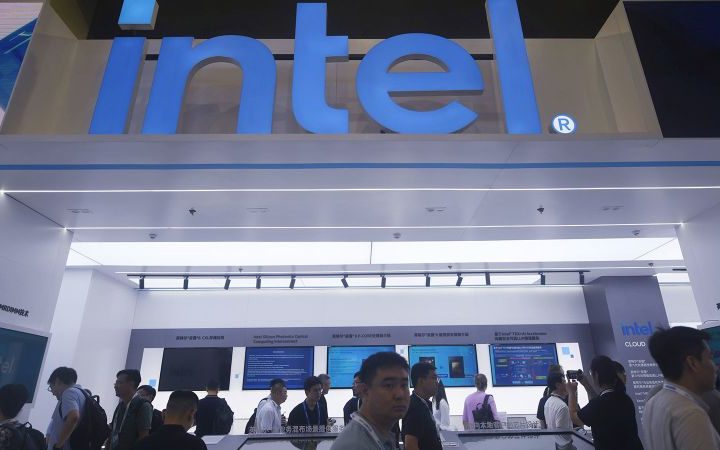The CEO of Texas-based baby clothing company Kyte Baby has issued two apologies after denying a remote work request by an employee whose baby was admitted into a neonatal intensive care unit.
In late December, Kyte Baby worker Marissa Hughes and her partner adopted a baby boy who had been born after only 22 weeks of gestation, who was “barely over a pound” at birth and had “various health concerns,” Hughes wrote on her GoFundMe page, asking for crowdsourced funds to meet the steep NICU costs as well as various adoption and legal fees. But when she requested to work remotely while staying with her baby at the NICU, the company fired her, according to a TikTok video posted Wednesday by a woman who says she is Hughes’ sister.
Hughes did not immediately respond to CNN’s request for comment.
Kyte Baby’s CEO and founder Ying Liu first apologized to Hughes in a TikTok video on Friday “for how her parental leave was communicated and handled,” saying that “Kyte Baby prides itself in being a family-oriented company.”
On the company’s site, Liu says she was inspired to start the clothing company because her daughter’s experience with chronic eczema made her sensitive to different fabrics.
Kyte Baby’s social media presence also curates a mother-friendly image.
“We work at Kyte Baby: Of course we’re going to bring our kids to work,” an employee says in one TikTok video. “We work at Kyte Baby: Of course we’re expecting,” another chimes in. Another video titled “Meet the Kyte Baby Team” introduces various Kyte Baby employees, each dancing with a child or two in tow.
“This is a classic case of a brand not walking the walk,” Lauren Jennings, executive vice president and crisis communications strategist for Alison Brod Marketing and Communications, told CNN in an email. “The same way we would advise our clients to be cautious about rolling out a campaign for International Women’s Day without having a single female on their board, we would advise a parenting brand to of course evaluate how they approach maternity leave, working parent procedures and benefits. When you have a situation where consumers no longer see your brand for what (it) claimed to stand for, you almost always need to approach your crisis strategy with an abundance of vulnerability, ownership and humanity.”
Liu’s initial apology was met with backlash on social media, with some commenters criticizing the fact that it appeared disingenuous and canned.
“I am forever amazed at the tendency of corporate America to want to strip the humanity out of their communications, whether it be an apology or any other public statement,” crisis PR expert James Haggerty told CNN. “It could be that the lawyers get too involved, and have final say too often. More likely, though, it’s that everyone in the corporate environment is just so used to falling back on corporate-speak, banal cliches, legalese and muddied equivocation. What works in a corporate board meeting doesn’t often fly with the public…and it sure doesn’t work on social media.”
Several hours later, Liu posted another TikTok acknowledging that the first video was scripted and that she was deciding to go “off script and tell you exactly what happened.”
“I was the one who made that decision to veto her request to go remote,” said Liu, noting that she felt responsible as a mother and an owner of a baby company to set the record straight. “This was a terrible decision. I was insensitive and selfish … I cannot image the stress that she had to go through not having the option to go back to work and having to deal with a newborn in the NICU. Thinking back, it was a terrible mistake.”
“Consumers can actually be very forgiving, but you have to give them authenticity in order to have the chance to receive that after a mistake like this,” Jennings said. “The first video kept her sitting above the consumer with a lack of remorse, authenticity and genuine ownership. The second video brought (her) down from the authoritative level of CEO and got on the same level of the consumer to say ‘I messed up.’”
“It’s also important to point out that this is a brand that promises to understand motherhood and be there to support moms, especially new moms,” Jennings added. “The weight of breaking that promise to moms is much more serious than what brands outside the parenting category might encounter. Due to the sensitive nature of motherhood, it will be interesting to see if moms are willing to forgive such a beloved brand.”
Kyte Baby told CNN that Hughes worked with the company for about seven months, and qualified for two weeks of paid maternity leave. However, as part of the plan, employees “were required to sign a contract stating that they would return to their job for a minimum of 6 months after their paid leave was complete,” Kyte Baby told CNN in a statement on Friday. “Marissa was offered the standard package of 2 weeks of maternity time, but given her son’s situation, was unable to sign the 6-month contract. She did propose a remote option for her job, but given that her role was largely on-site, at that time, we did not feel that the proposed plan would fulfill the responsibilities of her current position. We told her we understood her situation and informed her that her job would be here if and when she opted to return.”
The company added that it is now revising its maternity leave policy.
The decision to reject Hughes’ remote work request, though criticized by many from an ethical perspective, was still perfectly legal, highlighting the lack of workplace protections mothers and pregnant people have in the United States. Because there is no federal program guaranteeing paid parental leave and only a handful of states have laws mandating this type of paid leave, workers often find themselves at the mercy of their employer’s requirements when it comes to support after adopting or giving birth.
While not a replacement for a paid maternity leave, the pandemic-driven remote work landscape has given working mothers — many of whom still take on the lion’s share of the unpaid childcare and household labor — the flexibility to care for loved ones while continuing to participate in the labor force.
A report published in August from the Brookings Institute’s Hamilton Project found that 70.4% of women with children younger than five are working, compared to a peak of about 69% before the pandemic — a jump partly attributed to the flexibility of remote or hybrid work. According to a survey published by Bankrate that same month, 77% percent of full-time working women with children under the age of 18 support hybrid work schedules, while 74% support remote work.
An alternative — completely exiting the workforce in order to take care of children full-time — may not be financially viable for families who need more than one salary to pay the bills amid a few years of punishing inflation and rising prices. Exiting the workforce can come at a steep individual financial cost for women. A 2023 report from the Department of Labor’s Women’s Bureau found that a mother’s employment-related caregiving costs amounts to forfeiting roughly $237,000 in earnings over their lifetime and an additional $58,000 in retirement income.
Read the full article here







